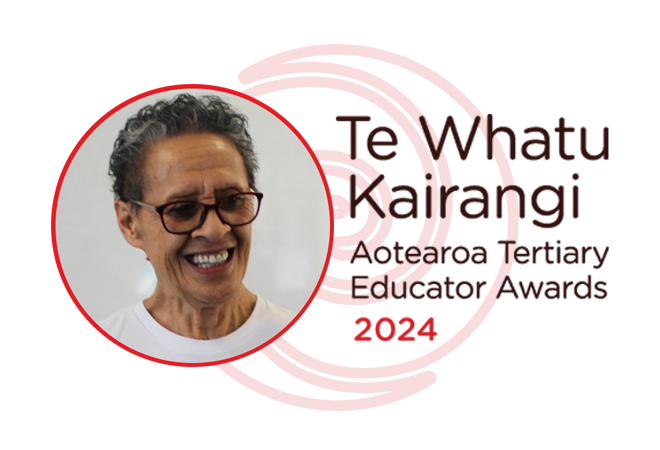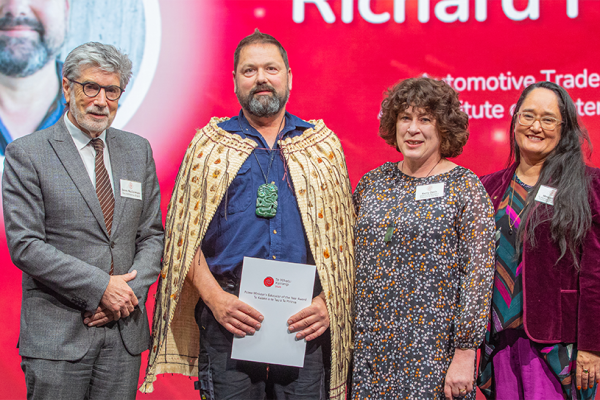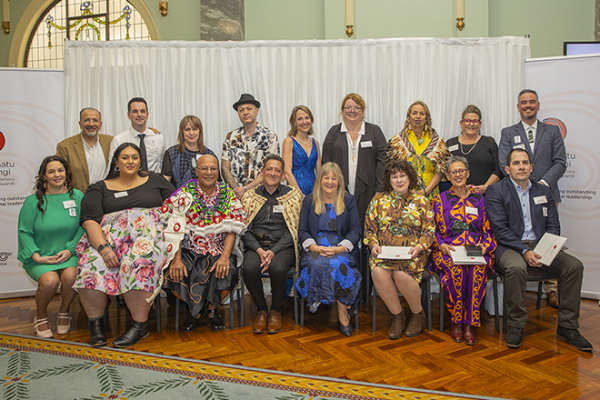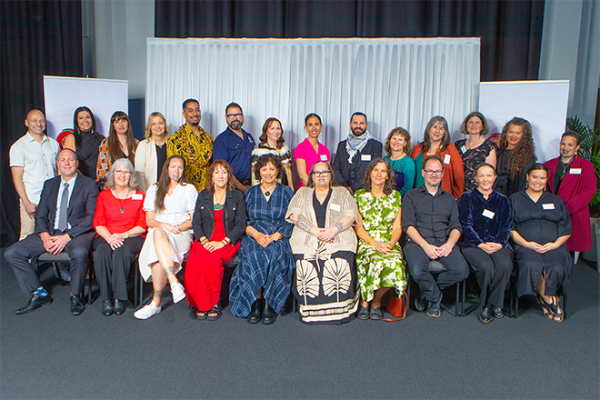Hiria Tumoana
An authority on, and an activist for the language
Prime Minister’s Joint Educator of the Year
and Te Tohu Reo Māori Award winner
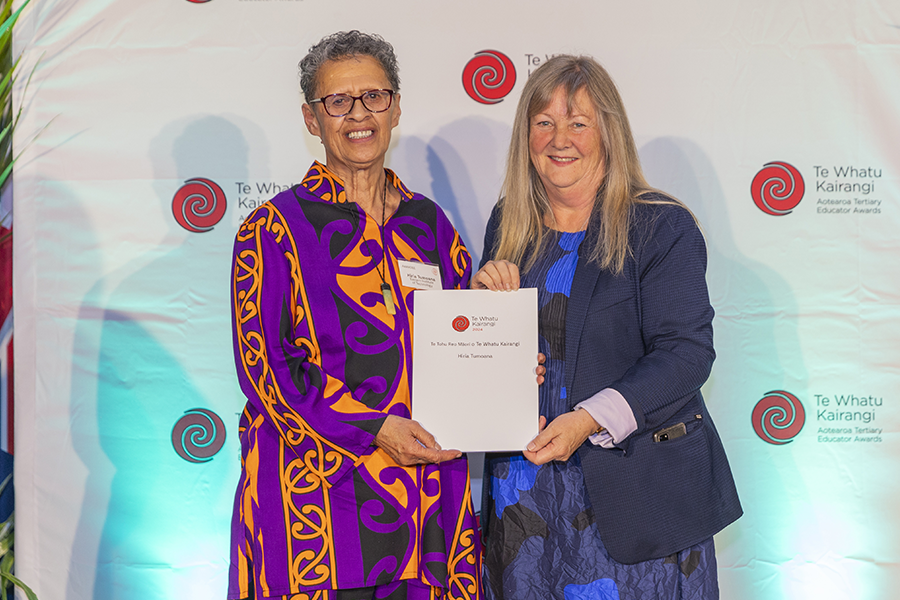
Senior Lecturer, Te Ūranga Waka | Māori Studies, Eastern Institute of Technology
“We are inundated with Māori students. Whole families come to learn together. It’s amazing. Our classrooms are bursting with students. The best thing of all is the familiarity, the collegiality and relaxed nature of the students’ connection with each other which is brought about through their hunger to understand the Māori world.”
Teaching the Māori language is Hiria’s absolute passion. She is proud of her graduating students and is astounded and uplifted by their endeavours back in the schools, families, marae, hapū and iwi of their own communities. She has seen them, in turn, become leaders, advocates, and organisers on their marae, schools and workplaces, working collaboratively with young and old. They have become actively involved in, and carry out, the wishes of their elders.
Hiria’s first position was as a teacher of Māori at Victoria University in 1977. She says she found teaching this group of young people, adults and elders an amazing experience which brought out a vast amount of Māori knowledge.
In 1980 she obtained her BA with Honours, and, in 1994, a close friend invited her to the Eastern Institute of Technology to help revive the Māori language amongst his people of Ngāti Kahungunu. This was an exciting undertaking for her. The main subjects she taught were the Māori language and the protocols of the marae, subjects she continues to teach to this day. Her role also covered Māori language research, Māori history and linguistics.
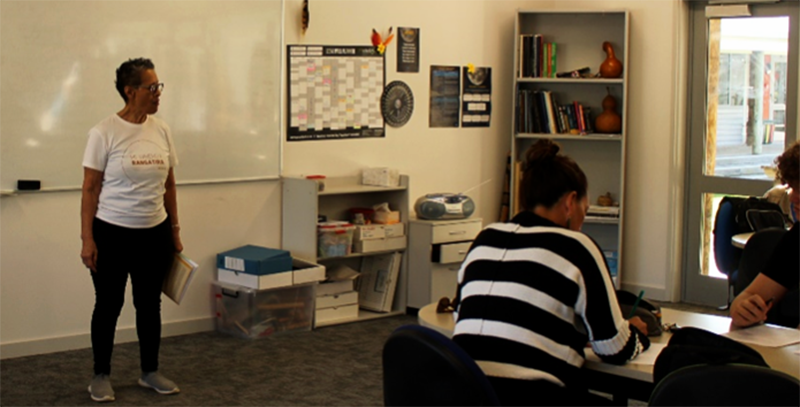
With mixed generations learning together, Hiria finds that skills, knowledge and questions abound throughout the language learning and teaching progamme. She says the greatest thing is that the students have a united focus – they not only want to learn the Māori language but want the Māori language to be their primary spoken language. She also recognises that there have been many physical, mental and spiritual benefits for all of Te Manga Māori from their learning.
In 1998, Hiria’s uncles asked her to assist with teaching the Kura Reo Māori run by the Māori Language Commission. This consisted of four programmes a year, each programme being one week in duration. The students were composed of youth, young people, adults and elders and the language development programmes also included Kura Kaupapa Māori. Some of these lessons were broadcast by Radio Kahungunu within the Ngāti Kahungunu area, including Palmerston North, Wellington, the Bay of Plenty area, Auckland and Ruatāhuna. These lessons are still being played on Radio Kahungunu.
Hiria believes that, in teaching te reo Māori, the language should be correct and flow naturally. It should be authentically Māori, faithful to its roots, and of high quality. The teaching should be engaging and joyful, presented within the context of Māori history and traditional stories. There should be a complete understanding of the following questions: Who are you? Where are you from? What will you do in your lifetime? What is your legacy? Teachers should know karakia, mōteatea, waiata, and produce games to complement the student programme. They should provide the space for intuition and encourage the student’s own creativity.
Hiria’s teaching brings out the enthusiasm, passion and commitment of her students, enabling them to realise their aspirations and dreams and successfully retain the Māori knowledge they’ve been taught. Ever since she started to teach at Te Aho a Māui she has continually praised her students, no matter what they are doing or where they are. The outcome has been Māori language continuing to be their main language. She says she continues to see former students who have grown and, in some cases, started families of their own. The Māori language remains a strong presence in their homes and their health and well-being is thriving. They are all working hard and are deeply engaged with the Māori language.
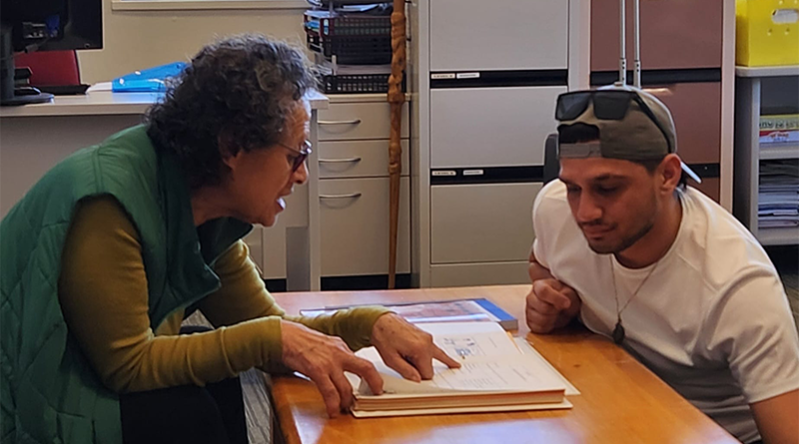
In her teaching Hiria uses many resources, such as listening, speaking, writing and reading activities. These may include interviews, writing, playing games and giving speeches. The most important thing for her is that students retain the vocabulary and dialect of Ngāti Kahungunu. The goal is for the students to retain the language of their female and male elders and their ancestors. In order that they may understand certain aspects of the language, Hiria talks to her students about a certain topic, after which they delve into various aspects of that topic. They discuss the linguistics and learn to read fluently in order to hear the timbre of the language.
Hiria uses creativity in her approach. She says the foundation of Te Ūranga Waka at Te Aho a Māui is the lullaby of Ngāti Kahungunu. The words of Pinepine te Kura are used as a teaching resource. Within Māori language teaching they use the metaphor of Tāwhaki climbing up the pathway to fetch the baskets of knowledge. She likes to draw on the stories, the guidance and genealogy of the gods and likes to craft stories to encourage students to contribute and ask questions and to use their language. Hiria believes it is important that students are relaxed before teaching begins, thus the students lead the daily tasks. She also believes it is important to celebrate their achievements and progress.
“I will never stop teaching the Māori language and hope to continue until my time is up.
